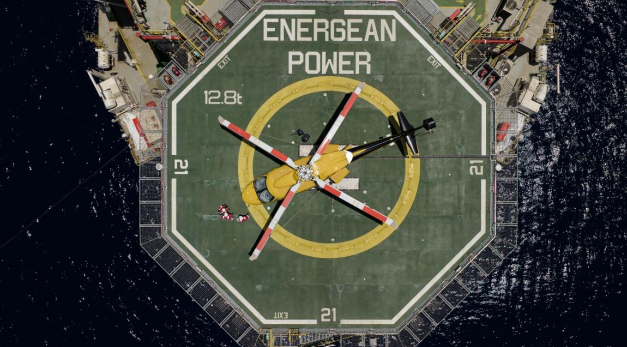The company has agreed to sell its portfolio in Egypt, Italy and Croatia to Carlyle International Energy Partners for up to 945 million US dollars and no less than 820 million US dollars.
Τhe deal is expected to be concluded by the end of the year, subject to obtaining all required regulatory and antitrust approvals.
Key aspects of the deal
The key aspects of the agreement provide for the following:
Price up to 945 million dollars, more than three times the cost of acquiring the specific assets which was 284 million dollars in 2020.
Transfer value of 5.4 dollar per barrel (proved 2P reserves) of oil equivalent, compared to an acquisition cost of 1.2 dollar per barrel.
Additional potential price based on Energean’s recent discovery in Egypt.
Payment of 504 million dollars upon formal completion of the deal.
Immediate free cash flow generation
Generating sufficient cash liquidity for Energean to fully repay its 450 million dollar Corporate Bond and to facilitate the payment of an extraordinary dividend of up to 200 million dollars to shareholders.
Savings of at least 7.5 million dollars annually in administrative revenue.
The strategy that led Energean to the transfer agreement
As stated in a related announcement, the transfer of assets in Egypt, Italy and Croatia allows Energean to rationalize its portfolio, focusing even more on its natural gas-based development strategy, which is marked by the development of the Karish and Karish North fields in Israel as well as from the recent entry into the Anchois field in Morocco.
It is a strategy that enhances the portfolio’s economic recovery prospects, generates free cash flow and maximizes shareholder benefits.
The transfer agreement also improves the quality of Energean’s portfolio, as more than 60% of the company’s decommissioning obligations are transferred, resulting in improved cash flows on a medium-to-short term basis.
Energean will also seek to further develop in the Mediterranean but also look for opportunities in Europe, the Middle East and Africa, especially in areas where there is a long-term support policy for natural gas and to replace coal.
The group will also focus on creating a carbon dioxide storage hub in Greece and the wider Mediterranean region through its subsidiary EnEarth.
Upon the completion of the agreement, the carbon footprint (Scope 1 and Scope 2) of the company is reduced by 40%, to 5 kg of emitted CO2 per produced equivalent barrel of oil, achieving the target set for 2035, 10 years earlier.














